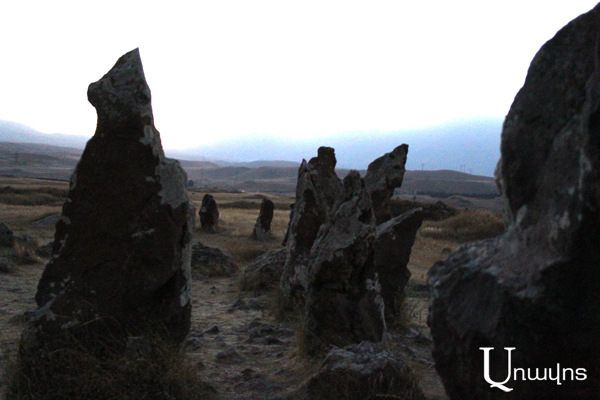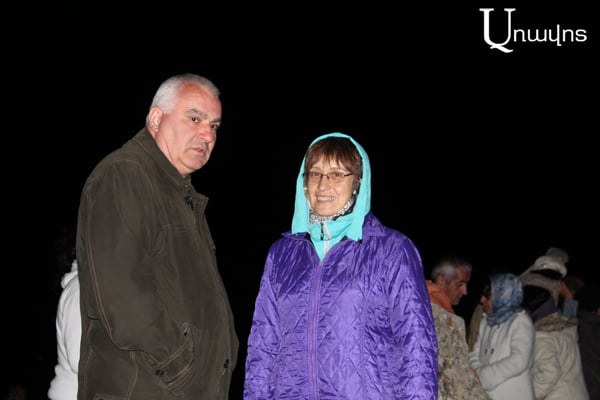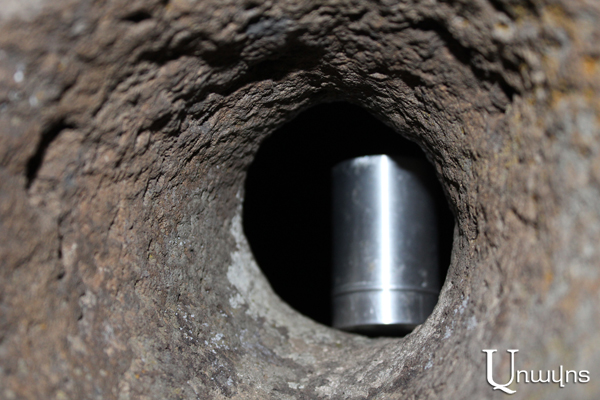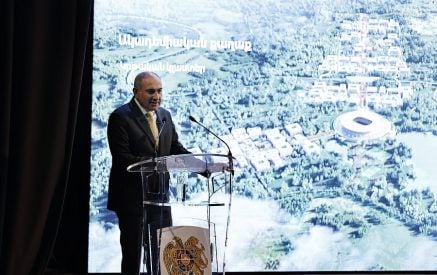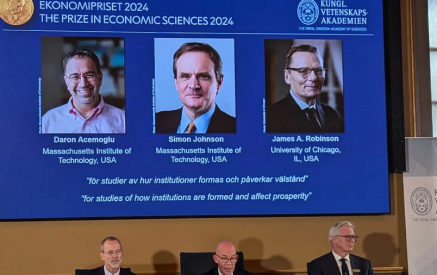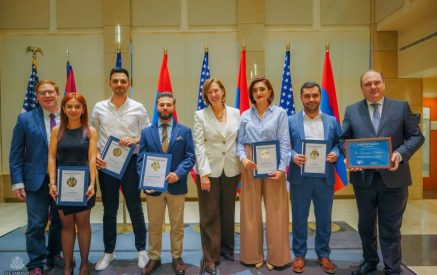At the invitation of Vazgen Gevorgyan, an explorer dealing with ancient civilizations, Yelena Gienko, Associate Professor of the Department of Physical Geodesy and Remote Sensing at the Siberian State University of Geosystems and Technology, Candidate of Technical Sciences, recently arrived in Armenia, and conducted research in Karahunj, Metsamor Observatory, Tatev Monastery and Vorotnavank. She presented the results of the research.
According to Gienko, the goal of the expedition was to prove that Karahunj and Metsamor are ancient observatories, and the Armenian cross-shaped cupola churches are star-observation and time counting centres. “We succeeded to prove that there is an observatory point in Metsamor. We found stones with holes, such as in Karahunj. The Polar or North Star is visible through the hole of one of the Megalites. This confirms that there have been star-observations conducted in Metsamor”, said the scientist.
She noted that there are pictograms in Metsamor, which remind of holes with tails: “I have studied Chinese pictograms: that’s how falling star is depicted. Therefore, it is possible to see falling stars in Metsamor too. Specifically, on August 11-13, the stars’ flow of Perseids can be observed”.
Yelena Gienko also visited Karahunj: “It’s an ancient observatory. Getting acquainted with Paris Heruni’s research, I can say that they are quite literate and accurate at the level of astrology. Those are amazing stone monuments that have a history of millennia. It’s a unique place where people watch the rise of the Orion constellation and the sunrise on New Year’s Day, in Navasard. When people look at the stars, it unites them”.
Luiza SUKIASYAN



















































